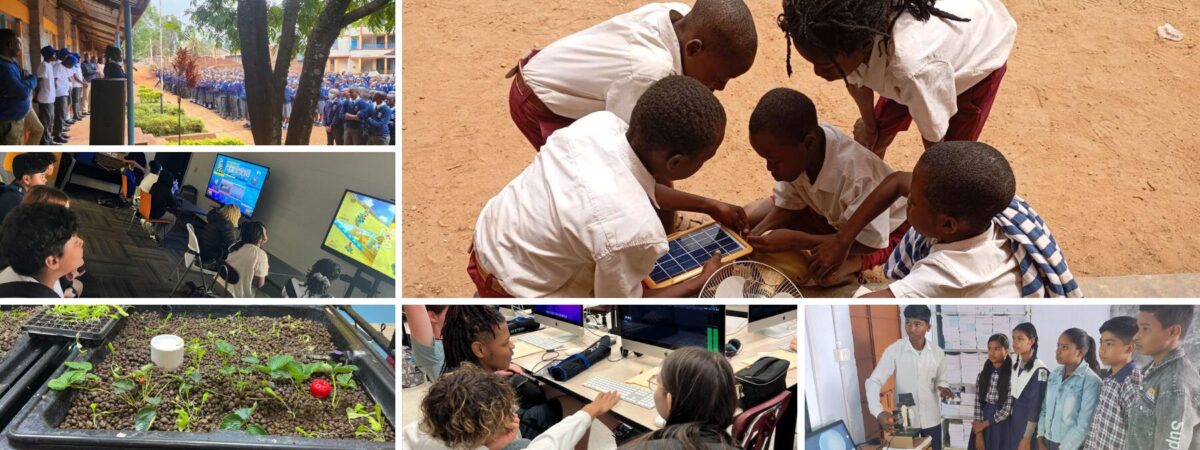
From preserving indigenous languages in Kenya to sustainable tourism solutions in Brazil, the 38 youth-led projects recognized in the 2024 Ciena Solutions Challenge Sustainability Awards highlight young people as leaders of today, not just tomorrow.
To recognize young people’s positive impact, employees at Ciena volunteer their time and experience each year to review Ciena Solutions Challenge projects. Volunteers understand the potential that young people have to design innovative solutions to real-world challenges, and provide guidance and encouragement to every participating team to help with sustaining and scaling their creative ideas.
As 2024 comes to a close, we are proud to share updates from some of the teams recognized in the 2024 Ciena Solutions Challenge Sustainability Awards, alongside reflections from a few of the Ciena team members who have joined us as volunteers to champion youth voice and innovation.
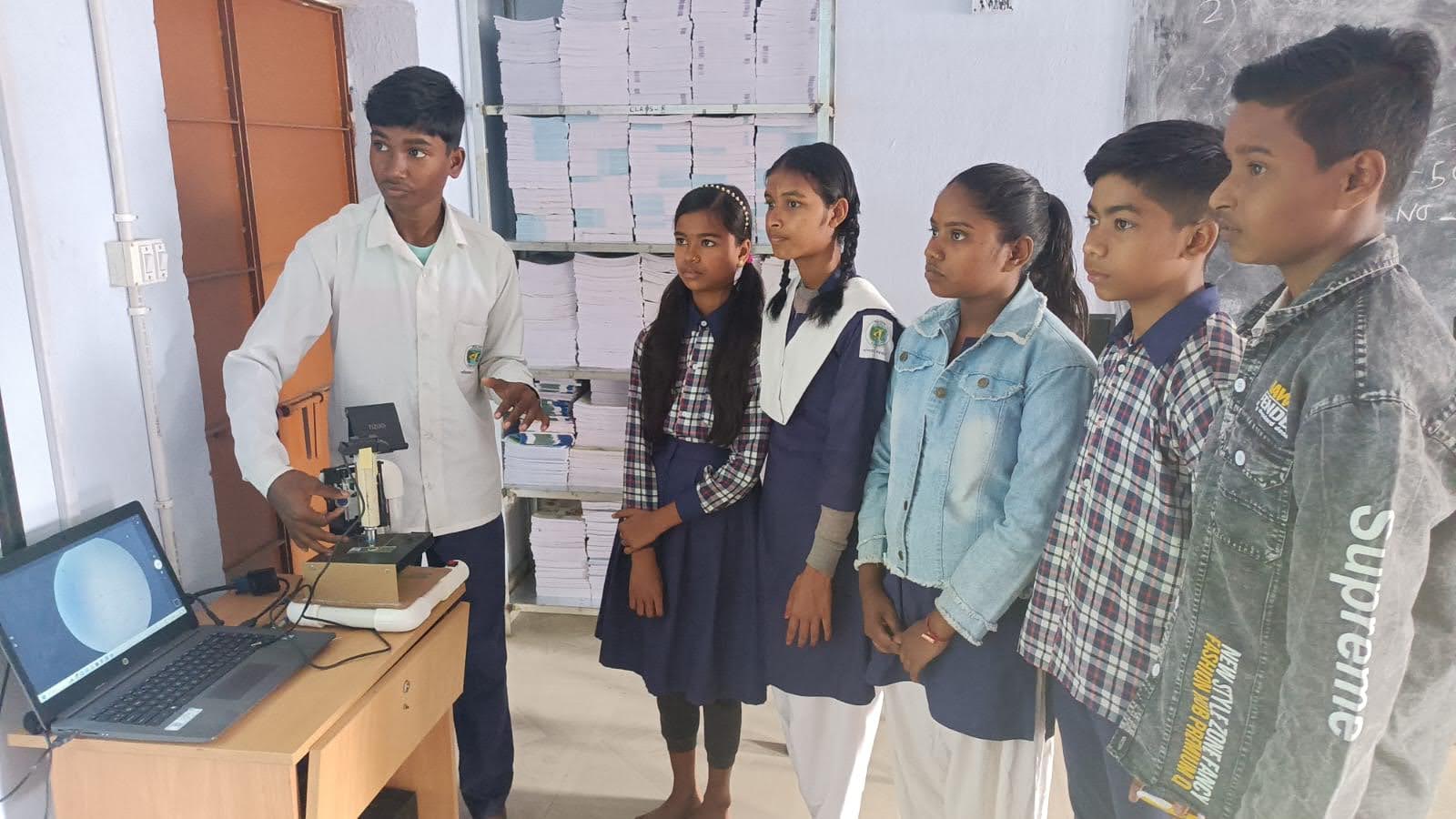
Students testing their Frugal Scope.
Since receiving a 2024 Ciena Solutions Challenge Sustainability Award, the Frugal Scopes project team at Gandhi High Vidyalaya in Purulia, West Bengal, India, has distributed 30 frugal scopes (microscopes made from recycled products) to nearby schools to enhance hands-on learning in large science classes, provided 162 tube scopes for students to use at home, hosted community workshops, and established a small laboratory for hands-on experiments.
“Your commitment to innovating frugal microscopes instead of relying on expensive equipment is truly commendable. It showcases your creativity and resourcefulness in striving for quality education despite limited resources … Your initiative has immense potential to enhance the quality of education by offering accessible and affordable learning tools.” – Divya Chitkara, FPGA Engineer, India
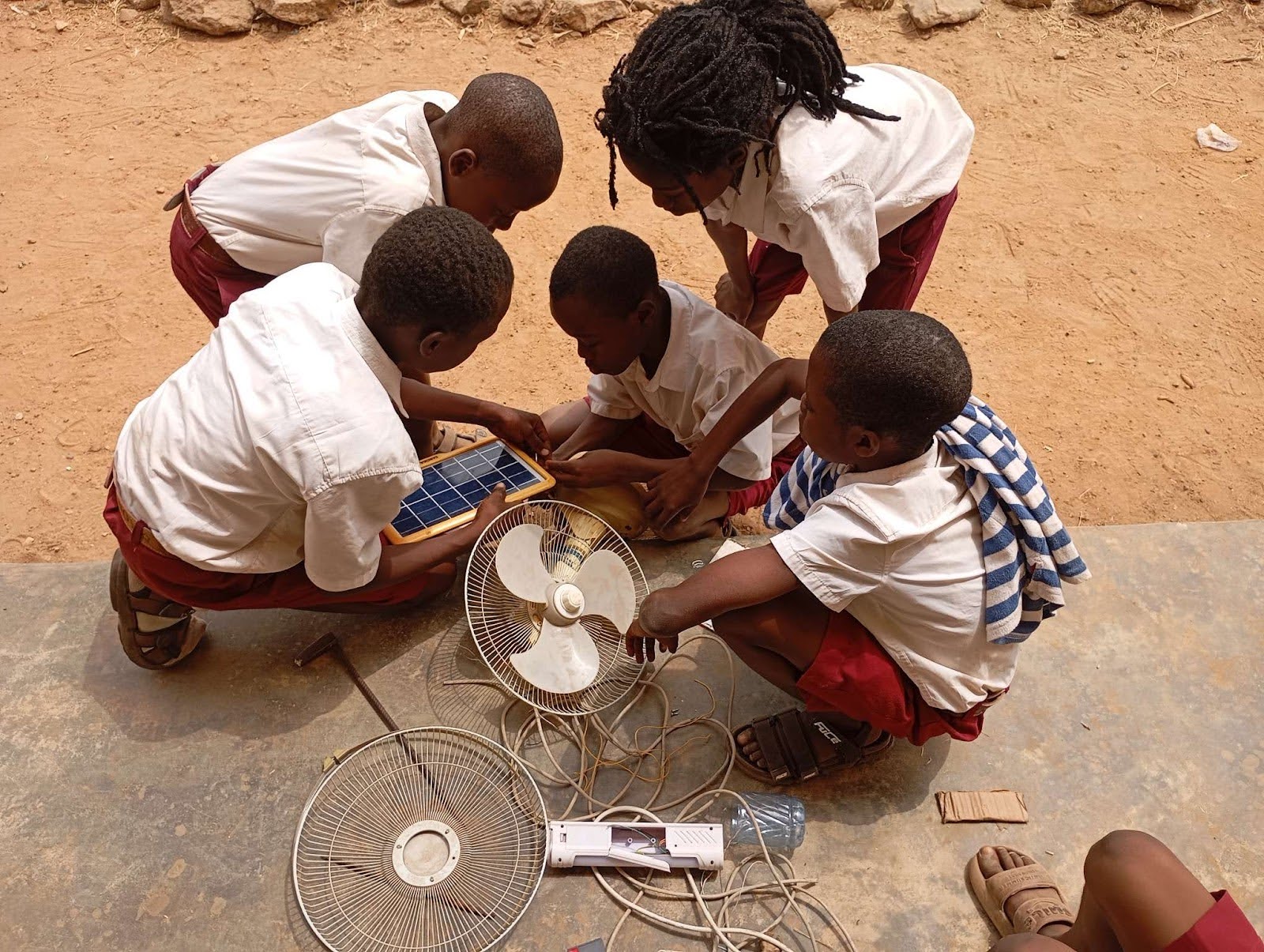
Students collaborating to engineer a repair and reconstruction of a broken fan.
Meanwhile, the team at Egba Odeda High School Junior in Odeda, Nigeria, is expanding their “Household Appliances Innovation Powered by Solar” project into an Innovator’s Hub at the school, creating a dedicated space for students to further develop their technical and problem-solving skills
“It’s wonderful to see these students learning the inner workings of electronics hardware and finding creative solutions to solve for electric grid failures. This exhibits creativity in using solar, a renewable and green energy source, as well as focusing on repairing existing appliances, which is a very sustainable mindset. This project has ripple effects wider than the school, as these appliances can be used at home and help others in the community. I encourage this group to keep finding opportunities to apply new ideas to technology, the world needs more forward thinkers like yourselves!” – Megan Ryan, Director of Environmental Sustainability, United States
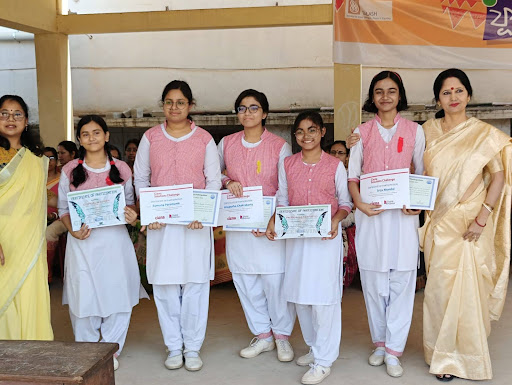
No More Limits team receiving “Telegraph” and “School that Cares” Awards, along with recognition from their local Rotary Club of Purulia.
The No More Limits team at Santamayee Girls’ High School in Purulia, West Bengal, India, continues their work to empower females in their communities with menstrual hygiene awareness while making them aware of their rights to access sanitary products. Since receiving a 2024 Sustainability Award, the team has partnered with area schools to procure and distribute sanitary pads to girls and women in remote areas throughout their community. The team went on to receive the The Telegraph Award in the section of The School that Cares and was recognized by the Rotary Club of Purulia.
“The No More Limits team has shown an extraordinary commitment to addressing a critical issue that often goes unnoticed. They have not only raised awareness about period poverty and its contribution to gender inequality but have also provided practical solutions to alleviate this problem.” – Julie Grantham, Senior Corporate Counsel, United States
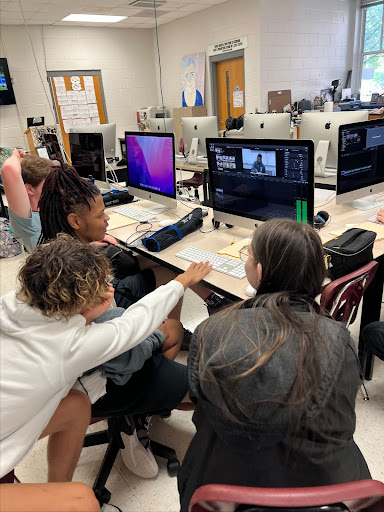
Students reviewing video footage together in the Memory Lab.
The Memory Lab Project team at Cedar Ridge High School and Alamance Community College in Hillsborough, North Carolina, United States has leveraged funding from a Sustainability Award to create a space where students and community members can preserve their memories for future generations. By transferring old analog and digital formats—such as oral histories, family photos, films, and videos—into a lasting repository, the lab helps to capture stories of shared experiences and the passage of time.
“It’s impressive to see so many young people who are as socially conscious and committed to spreading that awareness to the community around them – understanding the difficulties of the working environment at their age will allow them to thrive in the future. I hope the Memory Lab continues to be a place for history and memory to live on time.” – Mercedes Doumanian, Legal Analyst, Argentina
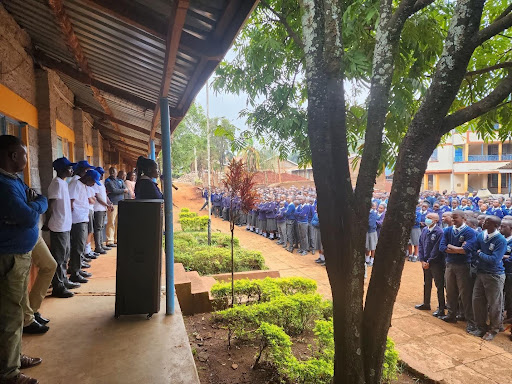
Learners who took part in Developing the Uliza Ujue app doing a presentation to the whole school during assembly.
Listen to the caption.
In Kenya, students’ question of “What if we had an app that could answer all our questions?” led to the conception of Uliza Ujue (Kiswahili translation for “Ask and you shall be answered”). After winning a Sustainability Award, the team went on to design an app that lets students ask questions anonymously, helping them seek answers with confidence and fostering an environment where curiosity is celebrated.
“Uliza Ujueb is a convenient idea to improve on the way information is passed to the students … It’s a simple idea that could be implemented within a classroom, a school, or wider.” – Kenton Anzai, Hardware Designer, Canada
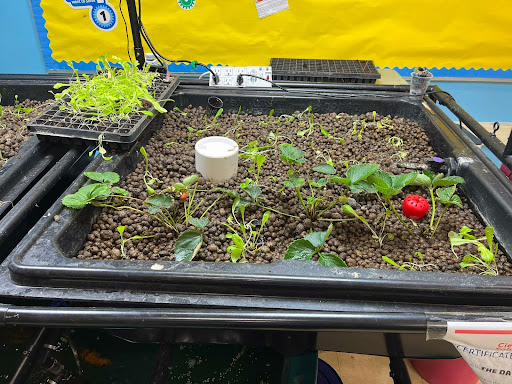
Students’ aquaponics growing station.
The team at Davis Middle School in Compton, California, in the United States used their Sustainability Award to expand their Aquaponics: Feeding the World From Confined Spaces concept and are growing new crops this year, including basil, strawberries and lettuce in their aquaponics system. In the latest update, Davis Middle School made it to the Top 10 listed schools for the Innovation Category in the World’s Best Competition sponsored by T4 Education and their Aqua Truck Team won third place in the City of STEM Competition in Los Angeles in May 2024.
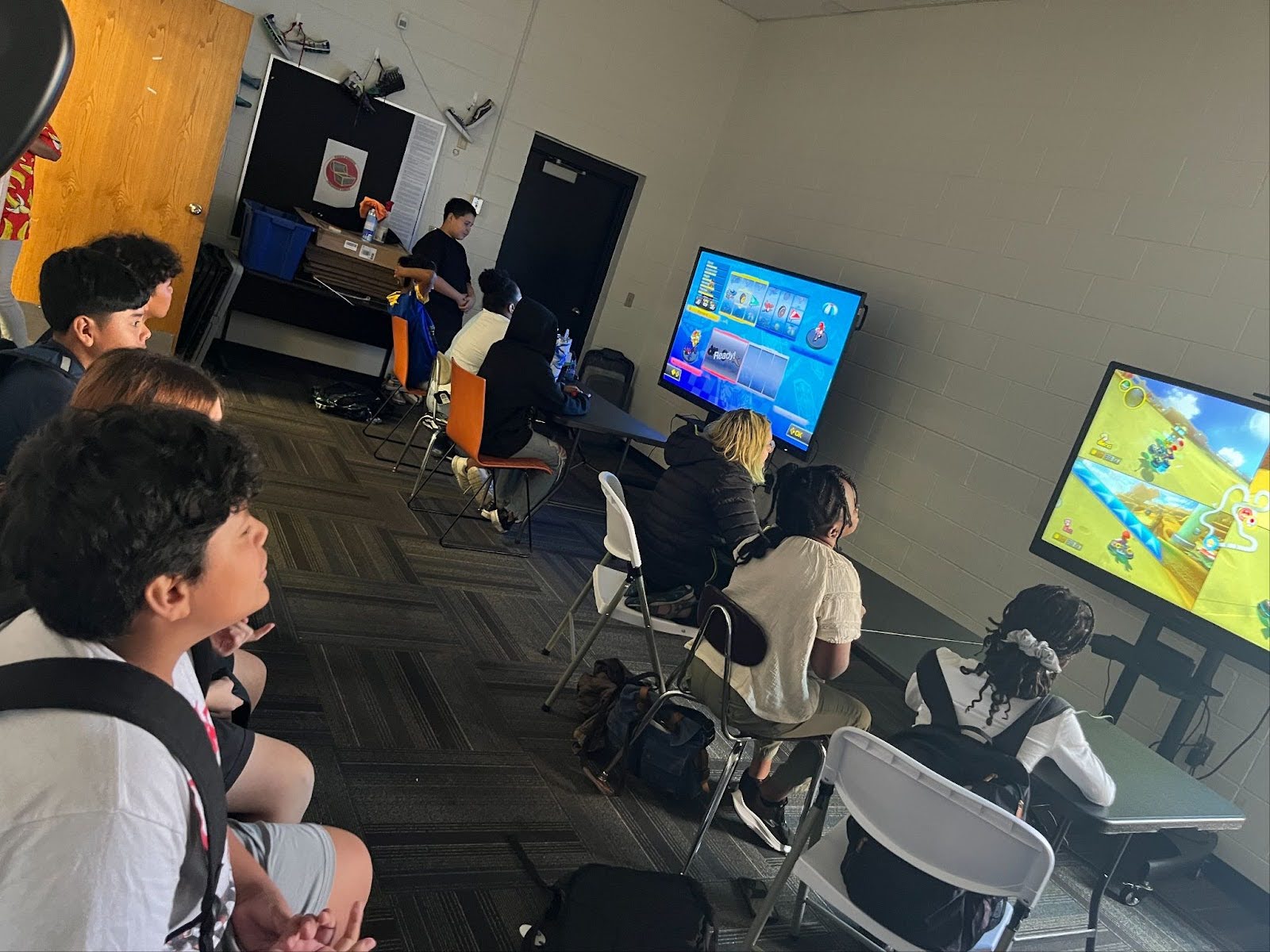
Students in Lindsay-Darshaun Murray’s esports team engaged in gaming.
Meanwhile, Team Pirate TECHnics at Paseo Academy of Fine and Performing Arts in Kansas City, Missouri, in the United States continues to explore how esports and gaming can empower students. Since receiving the Sustainability Award, the school district has invested in a full curriculum to support the growth of the esports program described in their Beyond Pixel Prowess project and they’ve officially started tryouts for their esports team.
“The idea of a competitive esports team within the school environment is a wonderful way to support inclusion … It allows them to find common interests with their peers and develop skills that can be transferred directly into their personal and work lives after high school.” – Kim DeLenardo-Comish, Senior Associate, Customer Order Fulfillment, Canada